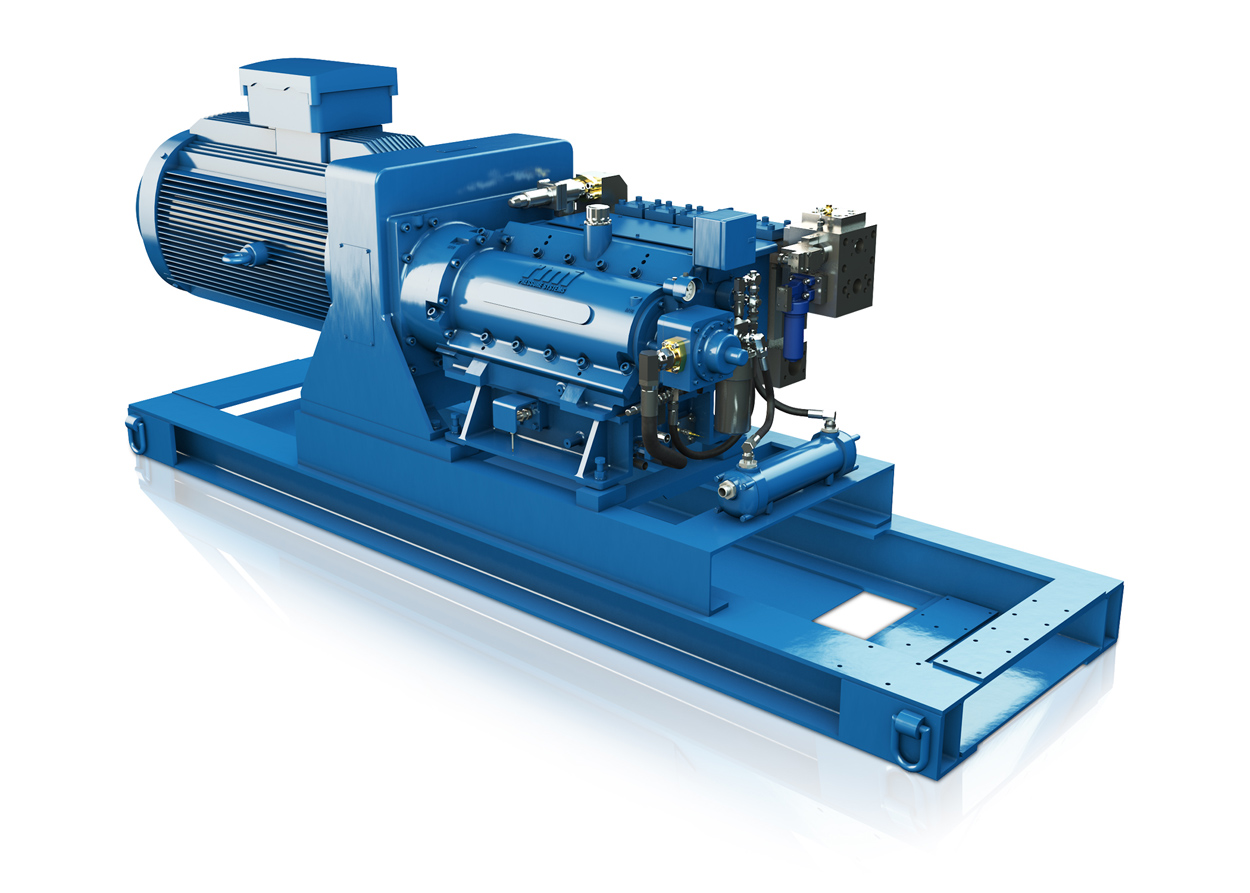On Demand Intelligence Delivers Savings For High Pressure Pumps
High pressure, high flow pumps require considerable energy input in order to deliver the demands of each application, be that in the mining or the steel industry

Increasing energy prices continue to apply additional pressure to these industries and so the manufacturers of these systems are developing more efficient control systems such as ODIN which has been designed and implemented by RMI Pressure Systems.
Traditionally, pumping stations have been supplied with either fixed speed pumps or with one variable speed drive fitted to the lead pump. However, the modulating demand for pressure and flow means that additional pumps are regularly starting and stopping which leads to higher energy consumption.
The first step in addressing the variable demand is to ensure that all pumps are equipped with variable speed drives and then all the pumps can be run at the most efficient level required to achieve the desired pressure and flow. This approach ensures that demand is met while also providing a smooth change in pressure and reducing the stress and wear on the pump components.
However, variable speed drives can only react to the available information, which could be just a simple pressure sensor. The next step is to develop a series of sensors which feed into a central controller that is capable of anticipating demand and therefore deliver pressure and flow as it is required with maximum efficiency.
RMI has produced a robust and reliable control logic system, known as ODIN (On Demand Intelligence) that is capable of rapid response and close control of system pressure. This sophisticated control technology enables the drive motors to run at their optimum speed and provide maximum output with minimal energy.
ODIN is available in three modes, Local, Remote and Prime, which can be arranged to provide the level of control appropriate to each application. In Local mode, the controller uses information provided by the pumping station itself to control the pressure and speed of the motor. This may be appropriate for descaling operations in steel mills and smaller underground mining applications.
Remote mode uses additional pressure signals from equipment located away from the pumping station, such as the roof supports of a mine. This extra information allows the pumping station to be more responsive and efficient in providing hydraulic flow.
ODIN Prime is designed predominately for a longwall mining application and can interrogate the individual components of the system to allow changes in demand to be fulfilled in the most efficient manner. The control system regulates the speed of all the pumps in the system and matches the pressure and flow characteristics required by the shearer and the roof supports.
Taking account of pressure signals at the valve banks and digital information, fed-back from the shearer electronics regarding both cutting speeds and linear travel, ODIN Prime calculates the anticipated roof support movements and the subsequent increased demand for hydraulic fluid from the pump station. Calculating the changes in demand before they occur allows the pumps to modulate in speed and thus change the flow and pressure, which enables the roof supports to operate in a more responsive manner which can increase the productivity of the mine.
In the steel industry, RMI has been working closely with a number of clients to understand the varying demands for flow and pressure in a descaling application. It is crucial to obtain as much information as possible to allow the maximum reduction in energy usage from the pump station. Traditionally in a rolling mill the mill stand pumps have been selected to cater for the design flow rate required for the maximum coil, billet, bloom or slab size. However, during operation the mill will produce various sizes and differing material specifications, all of which has a direct correlation to the actual pressure and flow required.
Taking this information on flow, along with the time taken per product, RMI calculates the flow and pressure requirements for all the variants and specifies the most efficient pump selection, size and quantity. On each pass of the material, the pumps will ramp up to the optimum speed for the duty required, ensuring that both flow and pressure are optimised in order to minimise energy losses.
ODIN stores all the key operating parameters allowing for interrogation of the history traces, which enables the user to adjust the parameters and fine-tune the system for even better control. Linking these three major components together has enabled RMI to not only reduce the pump running cost, typically by around 55%, but also enable the steel industry and mine operators to increase production.
CONTACT
Michael Sherman
RMI Pressure Systems Ltd
msherman@armlink.com
www.rmipsl.com
+44 (0) 161 274 2451



